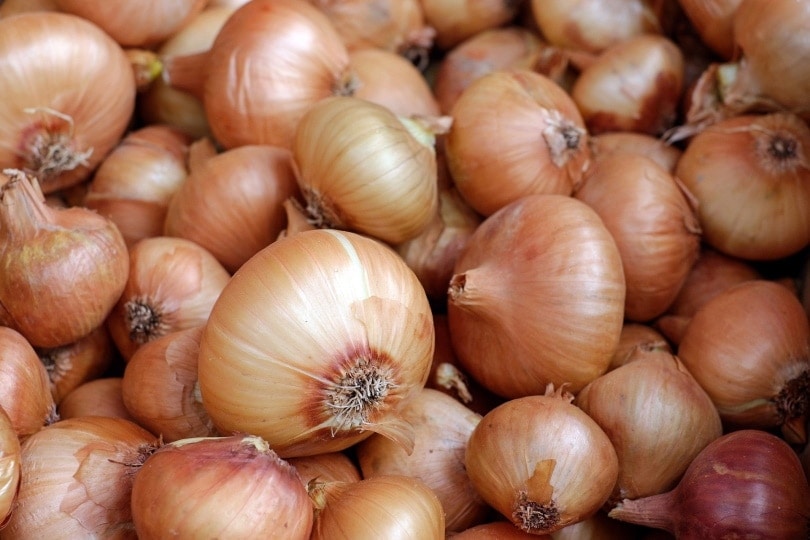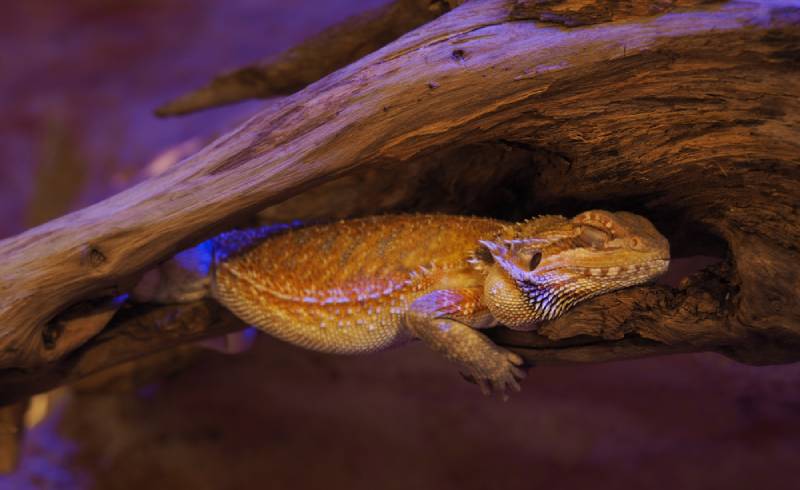Can Bearded Dragons Eat Slugs? Vet Approved Facts & Safety Guide
Updated on
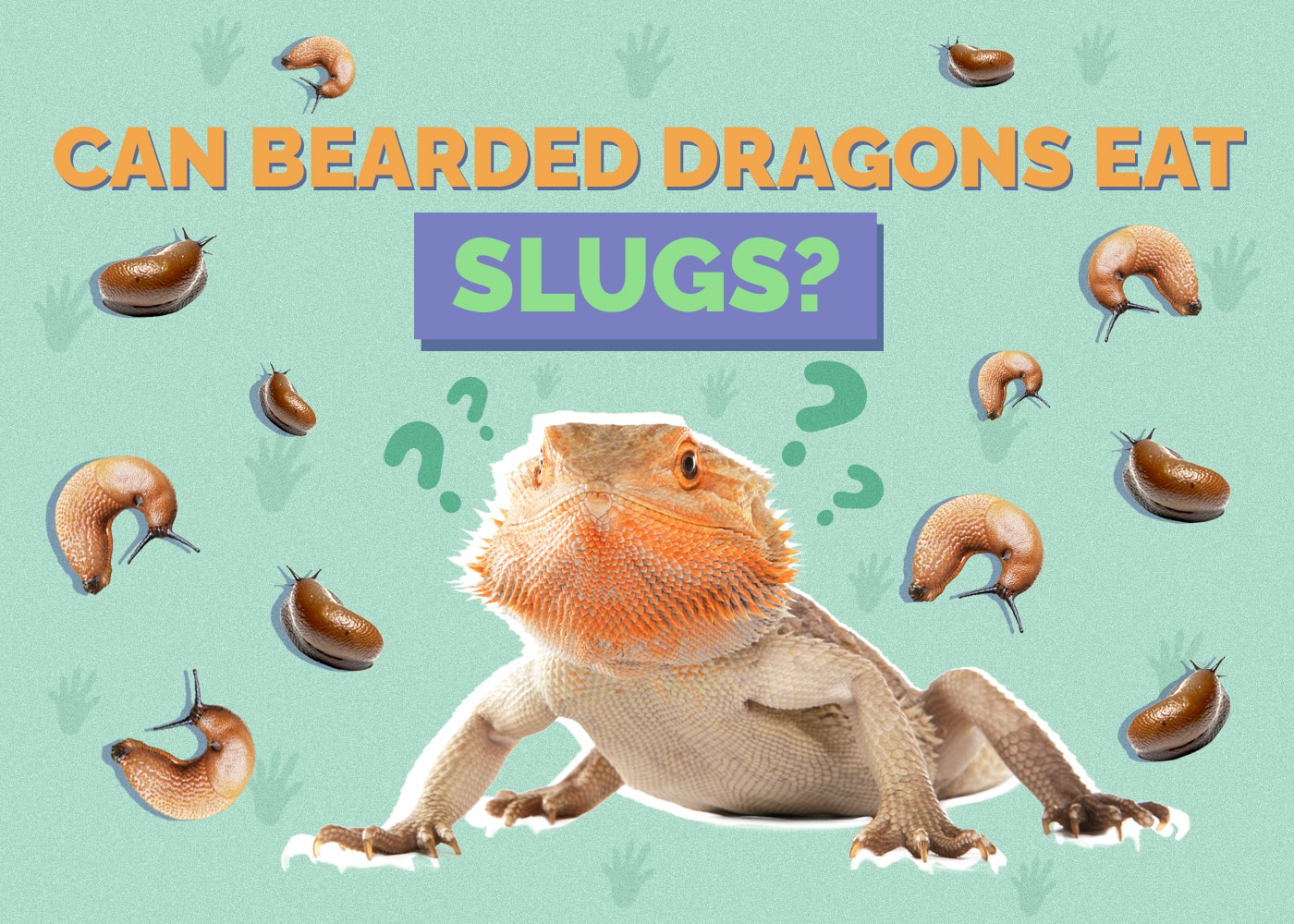
Click to Skip Ahead
As you can probably guess, feeding a bearded dragon is significantly different from feeding dogs, cats, and other more traditional pets. Bearded dragons need live insects in their diet, including crickets, cockroaches, and mealworms. But what about slugs? Yes, bearded dragons can eat slugs, but they must be served with caution due to the health issues they can cause. We’ll discuss the best way to feed slugs to your bearded dragon and the nutritional benefits they provide.
Are Slugs a Good Food Choice for Bearded Dragons?
Although bearded dragons can eat slugs, there are several limitations to including them in your beardie’s diet.
Slugs Can Have Harmful Parasites and Bacteria
Unfortunately, slugs often carry parasites like lungworms and tapeworms, which are very harmful to bearded dragons. They also carry the salmonella bacteria, which is harmful to your pet and also to you as their caretaker.
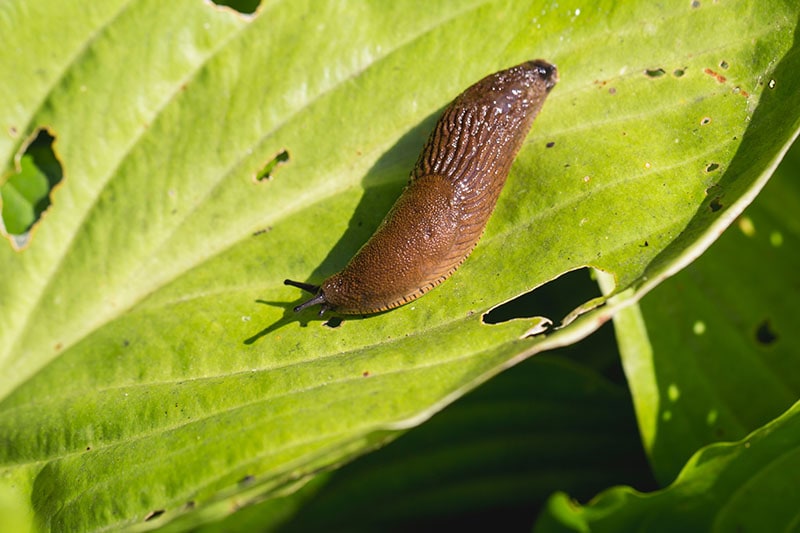
Slugs Are Often Contaminated With Chemicals
Slugs from your yard or garden are often covered in chemicals like fertilizers, insecticides, and herbicides. It is also common for people to put down slug pellets. Not surprisingly, these chemicals can make your bearded dragon quite ill, so you should only ever feed them slugs from pet shops or reputable pet food suppliers.
The Slime on Slugs Can Be Difficult for Your Bearded Dragon to Digest
Bearded dragons have a relatively sensitive digestive system that can be upset by the slime on slugs. This can lead to health issues, including bloat, intestinal impaction (i.e., blockage), and severe discomfort for your pet. It also means that some bearded dragons just won’t be interested in eating them.
Slugs Are Nutritionally Imbalanced
While they provide some nutritional value, slugs have an imbalanced nutrient profile. For example, they have too much protein and moisture for most bearded dragons.
Because of this imbalance, an overreliance on slugs can cause nutritional deficiencies in your pet and lead to health issues, including metabolic bone disease (MBD), which can be deadly.
Do Slugs Provide Nutritional Value for Bearded Dragons?
Although they have several drawbacks, slugs have nutritional benefits and can be given to them occasionally.
Slugs Make Your Beardie Hunt Search For Their Food
In the wild, a bearded dragon has to go out and hunt for food, which is a skill they can lose in captivity. Giving them slugs can help prevent this by providing a hunting opportunity. Compared with some of the faster moving prey, like Dubia roaches or crickets, slugs are more likely to lurk under foliage, meaning your beardie will need to do some searching for this high protein snack.
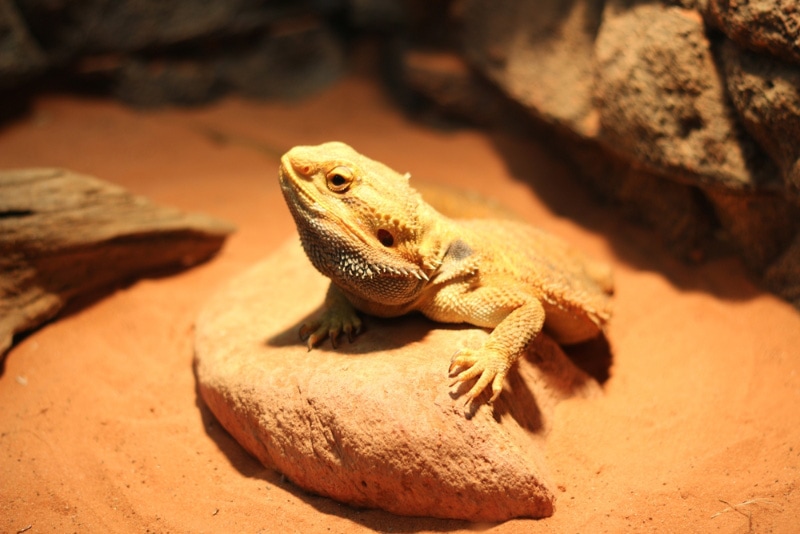
Slugs Are High in Protein
Bearded dragons, especially young ones, need a lot of protein to grow and mature. Slugs have a high level of protein which helps your beardie’s muscles grow big and strong.
Slugs Add Variety to Their Diet
A slug or two can be a nice treat if your bearded dragon is used to a diet of crickets, cockroaches, and other crunchy critters. They might also help improve your beardie’s appetite by igniting their passion for different foods.
How to Feed Slugs to Your Bearded Dragon
If you feed the occasional slug to your bearded dragon you can place one in their enclosure, tank, or terrarium and let your beardie eat it as they see fit. If your pet leaves any slug bits behind, remove them after they’ve finished eating. Also, ensure that any slugs you feed are smaller than the distance between your bearded dragon’s eyes.
If you want to feed the occasional slug to your dragon, follow the veterinarian-approved tips and advice below.
- Give your bearded dragon slugs no bigger than the space between their eyes. Anything larger could cause choking and impaction problems.
- Never feed slugs you find in and around your home. Only slugs raised to be food are acceptable.
- Think of slugs as an occasional snack rather than a significant part of your bearded dragon’s diet.
- Follow the supplier’s recommendations for cleaning slugs and preparing them for your bearded dragon.
- If a slug is still in your beardie’s enclosure after 24 hours, remove it. It is likely that your beardie just isn’t interested.
For more tips and advice on looking after your beardie, check out How To Take Care of a Bearded Dragon.
Can Baby Bearded Dragons Eat Slugs?
You can serve slugs to juvenile bearded dragons, and they are a good protein boost for their rapid growth. However, most veterinarians do not recommend feeding them to little baby dragons. Slugs aren’t toxic, per se, but pose several risks for baby dragons, including impaction, choking, and allergic reactions.
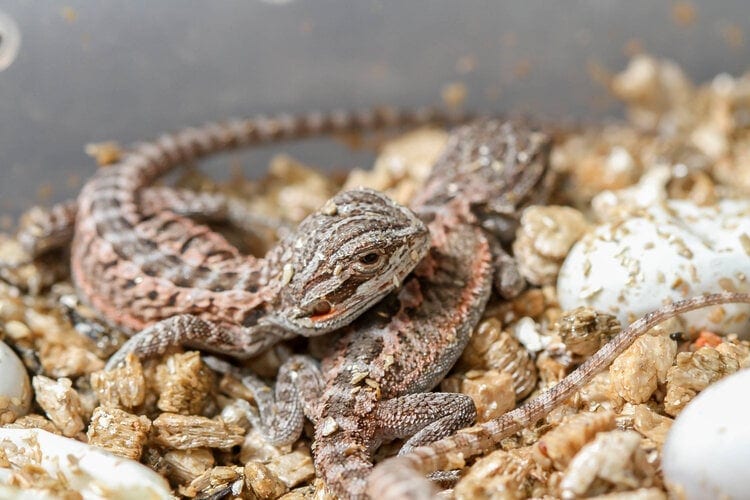
Final Thoughts
Dietary variation is super important to providing bearded dragons with the right nutrients, as well as some enrichment. Although slugs aren’t toxic to bearded dragons, they aren’t an item to be included on their regular menu. Being quite high in protein, they can cause some nutritional imbalances and gastrointestinal upset if your beardie consumes too often or in too high a volume. They make a nice occasional snack, especially for growing juveniles, but some won’t like their slimy texture.
Furthermore, slugs from your garden or yard are very risky due to the possibility of bacteria, parasites, and chemicals and should never be fed to your bearded dragon.
If you would like to offer your beardie an occasional slug, it should be one you purchased from a reputable reptile food dealer.
- See also:
- Can Bearded Dragons Eat Rolly Pollies?
- Can Bearded Dragons Eat Grasshoppers? Vet Approved Facts & Safety Guide


